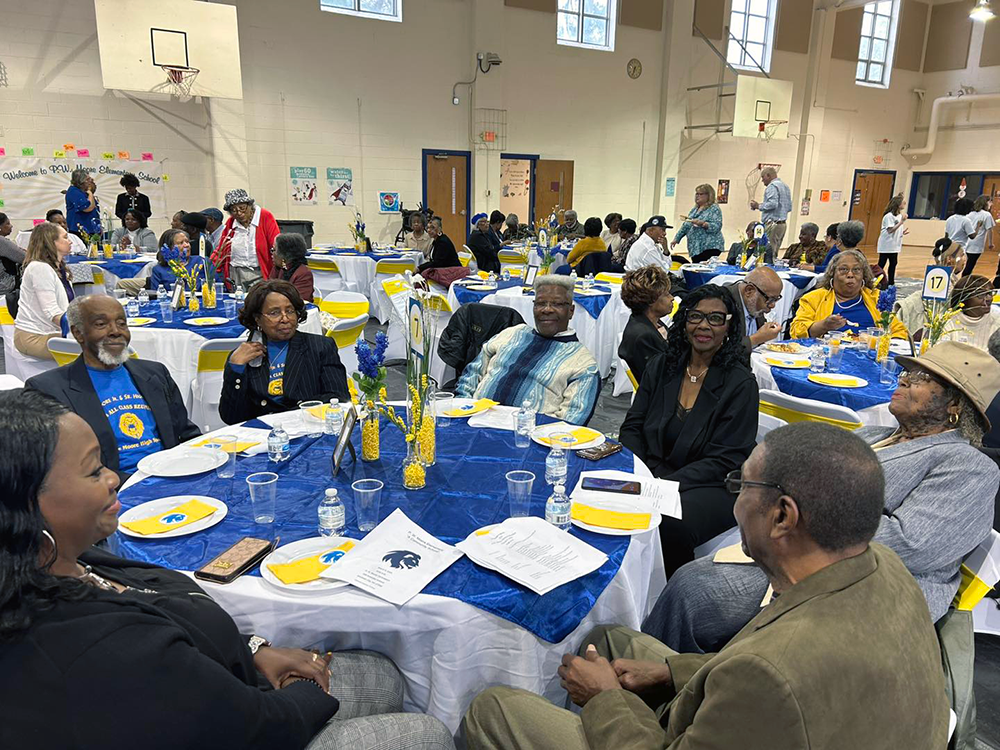
On the Ground and Connecting the Dots
How Local Universities Are Supporting Community Schools
One morning in March, a school gym in Elizabeth City filled with graduates who returned from around North Carolina and neighboring states for their alma mater’s first-ever alumni breakfast. Many of them attended P.W. Moore when it was a high school, widely considered the best public secondary school in the state for Black students during segregation. One participant was from the class of 1946, making her around 100 years old today.
Some alumni, like Hipp Barclift, were students while it was a middle school. “The school was originally for Blacks,” he said. “P.W. Moore himself was born into slavery and went on to become the first president of Elizabeth City State University.”

Barclift grew up three houses down from the school, went away to college and returned to this community of 19,000 residents in the northeastern part of the state. “Serving people is the only job I ever had,” he said. “I was a youth minister, a pastor for 12 years, I coached girls’ and boys’ basketball teams, retired from the Parks and Recreation Department and spent five years as a behavior coach in the Elizabeth City–Pasquotank Public School System.”
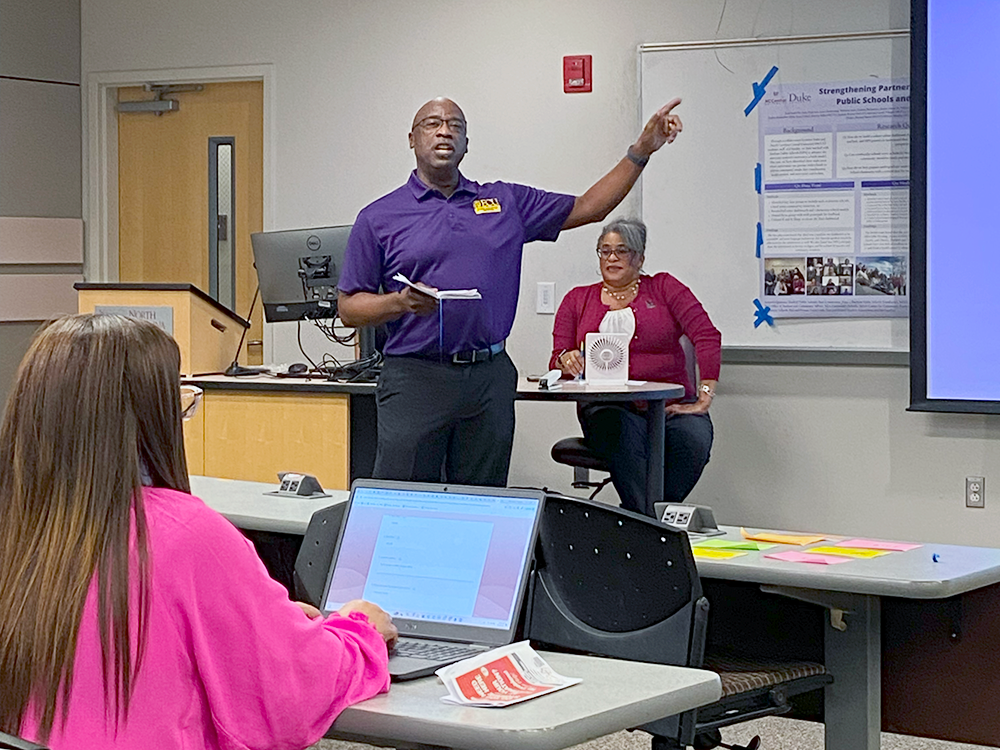
Today, Barclift remains deeply connected to his hometown. Through his current job as associate director of community schools coordinators, he implements a partnership between the local school system and East Carolina University (ECU) through the Rural Education Institute.
“Community schools are about the whole child,” he explained. They take a holistic approach by addressing hunger, healthcare access, housing instability and other social determinants of health that affect children’s development. Schools become hubs for services and resources that benefit students and their families.
Local universities can play a vital role to support these efforts. University-Assisted Community Schools are equitable partnerships designed to improve community well-being and advance research, teaching and learning.
Community schools are about the whole child ... It’s a holistic approach for the children and families.
P.W. Moore is now an elementary school, and the gym is the site of a free monthly dinner where families and teachers come together for a casual gathering. Graduate students from ECU track participation, collect feedback, compile data and conduct teacher surveys.
During these events, Barclift explained that “resource people come in and pass out information on topics like financial literacy, mental and physical health, and how to deal with stress. The Lions Club offers free eye screenings; 88 kids and 20 adults were referred to an ophthalmologist for further tests. This year, we rolled out free physicals and immunizations,” he continued. “It’s a holistic approach for the children and families.”
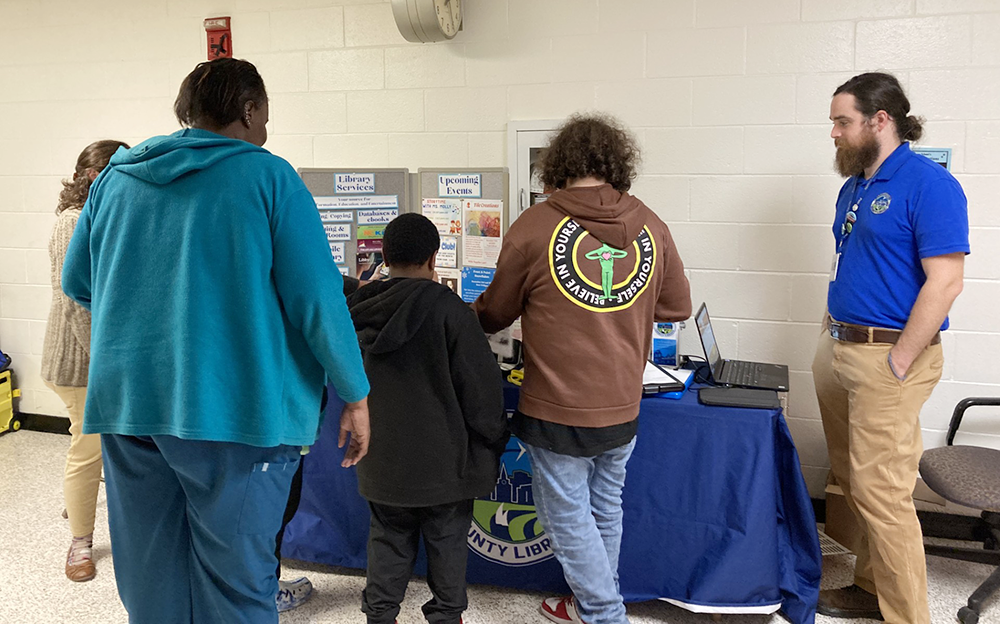
What’s Happening in Durham
About 150 miles to the west, Durham is the site of another innovative approach to University-Assisted Community Schools. Duke University and North Carolina Central University (NCCU) teamed up to strengthen partnerships between their institutions and the public schools in this city of 300,000 people.
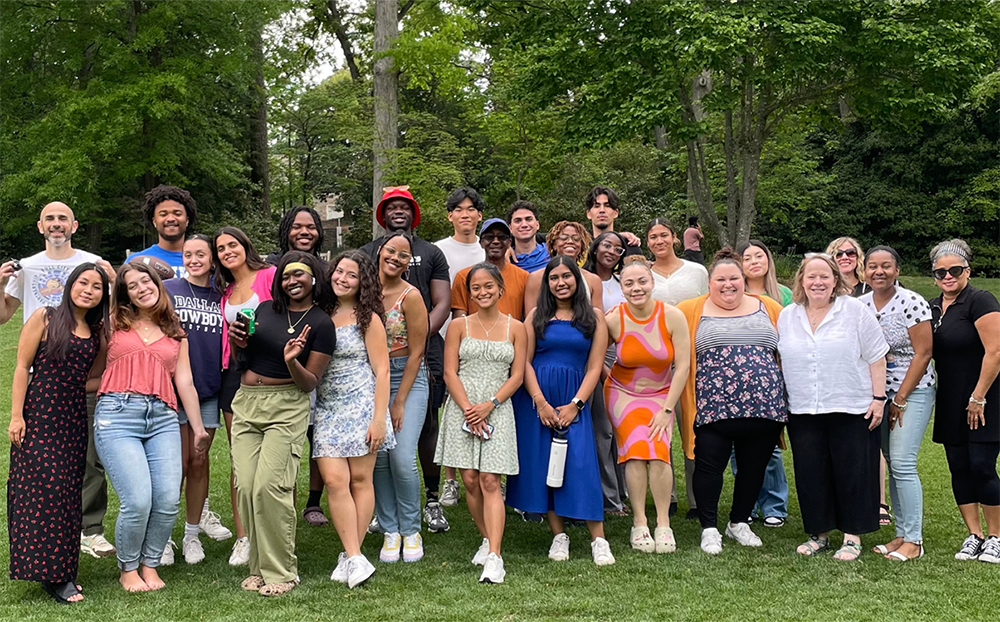
Undergraduates work on research questions that emerge from deep listening and a needs assessment process in self-selected schools. The students also make field visits to other universities engaged in this movement and work on projects to support the expansion of community schools across the state.
For example, an assessment revealed that teachers loved having classroom volunteers from local universities but thought some training would help them better understand the context and proceed with sensitivity. The Duke and NCCU students took on the issue of how to prepare undergraduate volunteers to enter classrooms with a critical lens for race, class and Durham’s history.

The resulting curriculum consists of self-paced modules on topics ranging from redlining and Eurocentric ideas to the history of Durham. It’s modifiable, said Yolanda Dunston, professor in NCCU’s School of Education. “We’re hopeful it can be a model for other universities to help students they’re sending out to the public schools, to help them understand the greatness and build on that rather than coming from a deficit perspective or a savior mentality.” Dunston added that a Duke professor will pilot the curriculum with a class in the spring.
Another student team developed a dashboard for schools to catalog assets in their neighborhoods such as food pantries, childcare centers, community gardens, pharmacies and spiritual centers. The dashboard visualizes schools and their surrounding resources using an interactive map, providing context about what makes these communities special.
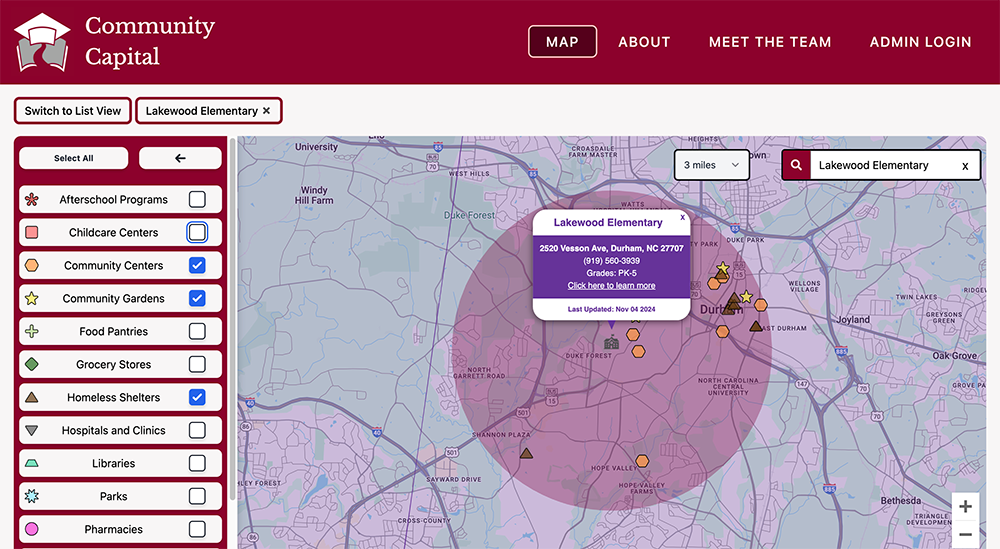
Back in Elizabeth City
Antonio Rook is another Elizabeth City resident with deep roots in the area. “I’ve been a part of community activities for a long time,” said Rook, who directs a pre-college program at Elizabeth City State University (ECSU) and has worked there for 22 years.
At home with his young children during the Covid pandemic, he wondered how he could help them make up the gap in learning. And for children who didn’t have internet access at home, he thought the gap would become even more pronounced. Through a partnership between ECSU and ECU, Rook was able to provide a free summer STEM camp that hired local educators. “We served 74 students last year,” he reported proudly, “so I’m excited for more community partnerships.”
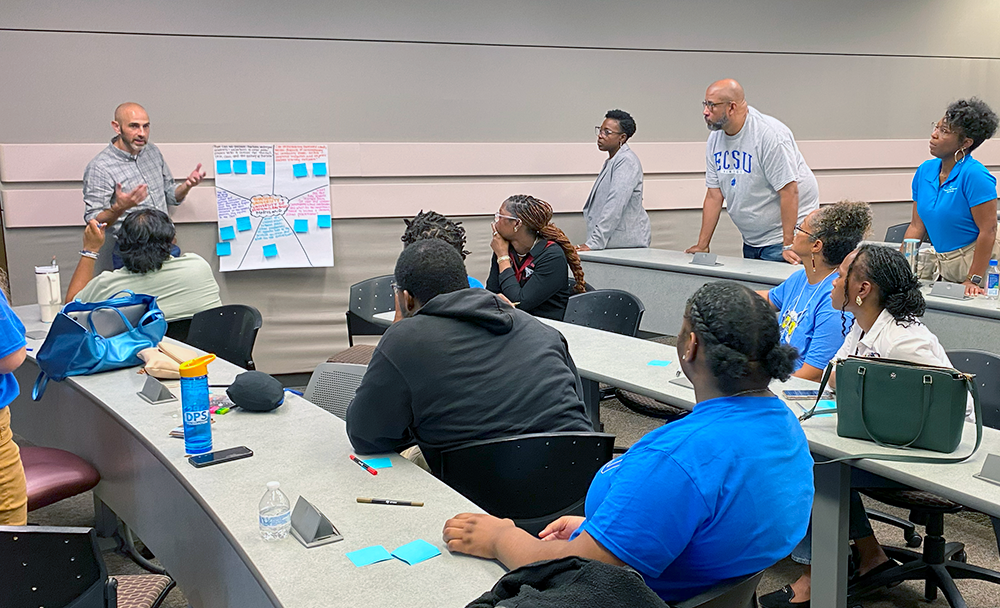
This year, he’s working with Nicole Austin, ECSU’s director of undergraduate research and creativity, to launch a University-Assisted Community Schools Research Collective inspired by the one in Durham. Undergraduates are learning social science research methodologies, engaging with local and national experts, visiting community schools and participating in group research with students from Duke, NCCU and ECU.
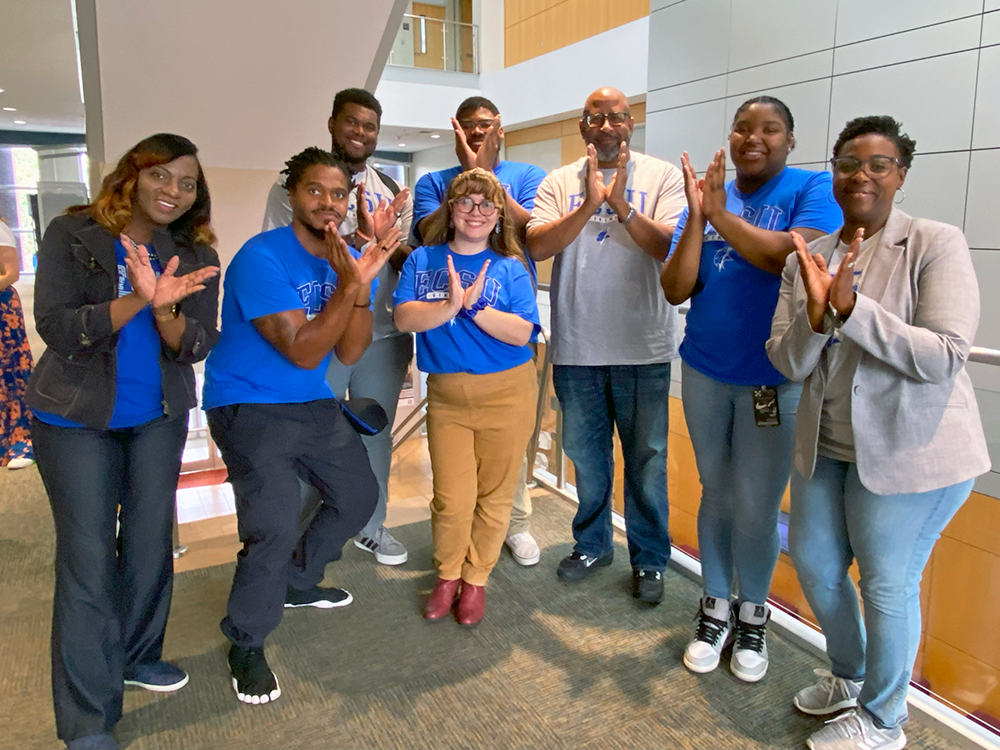
A Regional Coalition
One year ago, the Netter Center for Community Partnerships at the University of Pennsylvania chose Duke, NCCU and ECU to collectively establish the Southeast Regional Coalition for University-Assisted Community Schools. The group aims to catalyze the expansion of this model throughout the southeastern U.S.
“For the past year we’ve been working on coalition-building,” Dunston explained. “We’ve built this coalition on trying to show off folks who are doing work with community schools to support the self-identified needs of schools around us. On monthly coalition calls, we share what we’ve been doing and bring in schools from around the nation to show the realm of possibilities. There is no one right way to do it.”
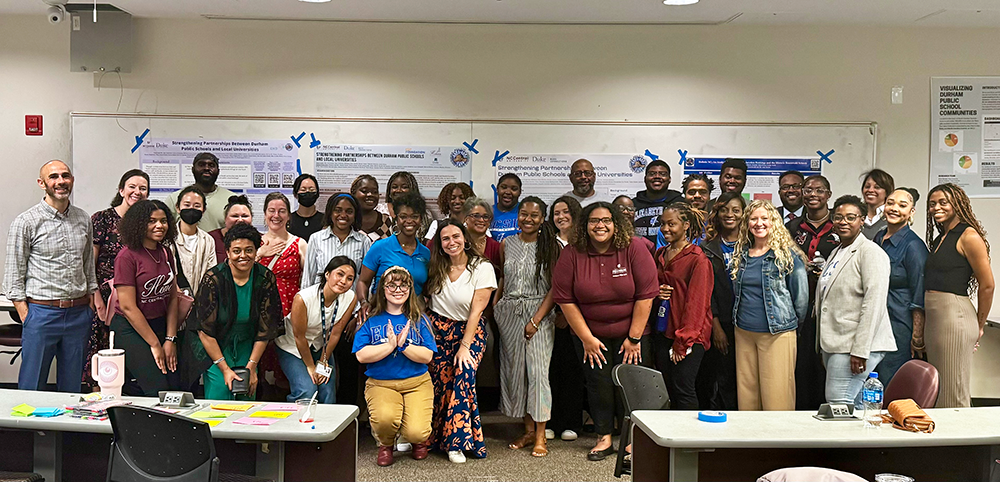
On the coalition’s first anniversary, Dunston and her NCCU colleagues hosted a gathering of teams from Duke, ECU and ECSU along with the North Carolina Community Schools Coalition. “It’s really exciting to see everybody coming together to make this work possible,” Dunston told the group.
Current members gave updates on their work, and former students returned to share reflections on their experiences. Small teams huddled to discuss their research questions and plan visits to universities in Maryland, Pennsylvania and Vermont.
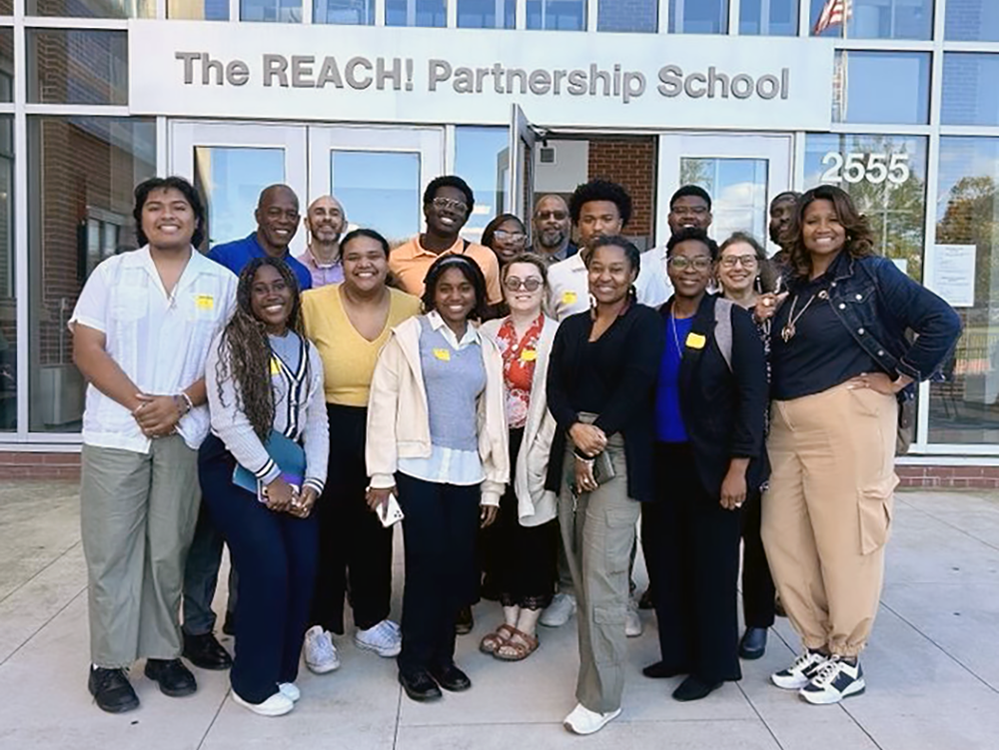
“It was cool to work on a team with others in different fields, contributing and learning from them,” said Amaya Jackson, who began participating while majoring in psychology and biology at NCCU and stayed with the team as she went on to receive an M.P.H. from UNC. “The collaborative approach and trying to break down barriers by putting people at the center … I love the curiosity that all of it requires.”

It was cool to work on a team with others in different fields, contributing and learning from them.
Seeing an Impact
Jerry Johnson, professor of educational leadership and interim director of the Rural Education Institute at ECU, said the monthly family dinners at P.W. Moore Elementary School have been attracting an impressive crowd — 300 to 500 people in a school with an enrollment of 400. He described a festive scene of locally catered food, babies being passed around, kids doing STEM activities or getting their eyes screened, and parents taking a financial workshop or chatting with teachers.
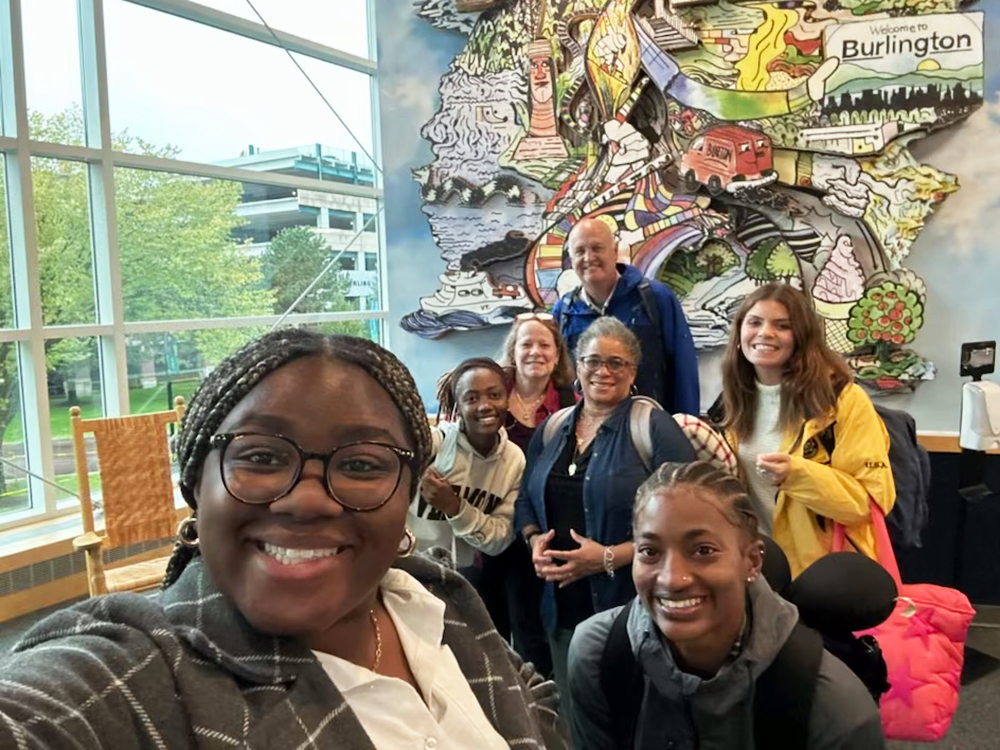
“We’ve heard from families that it’s much easier to have difficult conversations about a child’s progress after they’ve interacted informally,” Johnson said. “Parents say they’re feeling a greater sense of efficacy by being involved with the child’s education.” One mother told Johnson that after a year of these monthly dinners, she had one request: “I don’t want this to end when my kid leaves the fifth grade.” So, Johnson worked to add a middle school and a high school to help “young people in Elizabeth City get a community schools experience from K through 12.”
Parents say they’re feeling a greater sense of efficacy by being involved with the child’s education.
“We’re very excited about the two new schools coming on,” Barclift said, and he’s seeing the impact of university assistance for community schools. Relating a story about three families who were getting evicted from their apartments,” he shared the positive outcome: “We were able to get Housing Authority people, the mayor and two council members together in the room.” The families were not evicted, and they were provided with alternative housing.
“We are on the ground in Elizabeth City,” Barclift summed up. “We connect all the dots.”
Learn More and Get Involved
The Southeast Regional Coalition for University-Assisted Community Schools will host virtual gatherings as it continues to grow the movement and deepen relationships. Upcoming calls are scheduled for February 26 and March 26. Learn more and join the network.
On January 24, Duke’s Bass Connections program will host a fair where Duke and NCCU students can learn about the 2025-26 team and consider applying. All are welcome to attend the Fortin Foundation Bass Connections Showcase on April 16 to celebrate the accomplishments of the 2024-25 team.
The ECSU undergraduate research collective will participate in the opening day events of ECSU’s undergraduate research week on April 7.
NCCU will host the “Southern Roots: Growing University-Assisted Community Schools Partnerships” symposium on April 10-11. The symposium is for university-assisted community school practitioners in the southern United States. Contact team@southeastuacs.org to learn more.
Read about Jessica On, who began participating as a Duke undergraduate and remains involved in a leadership capacity while teaching fifth grade at Lyons Farm Elementary in Durham. She received the N.C. Student Teacher of the Year award for her work at E.K. Powe Elementary in Durham.
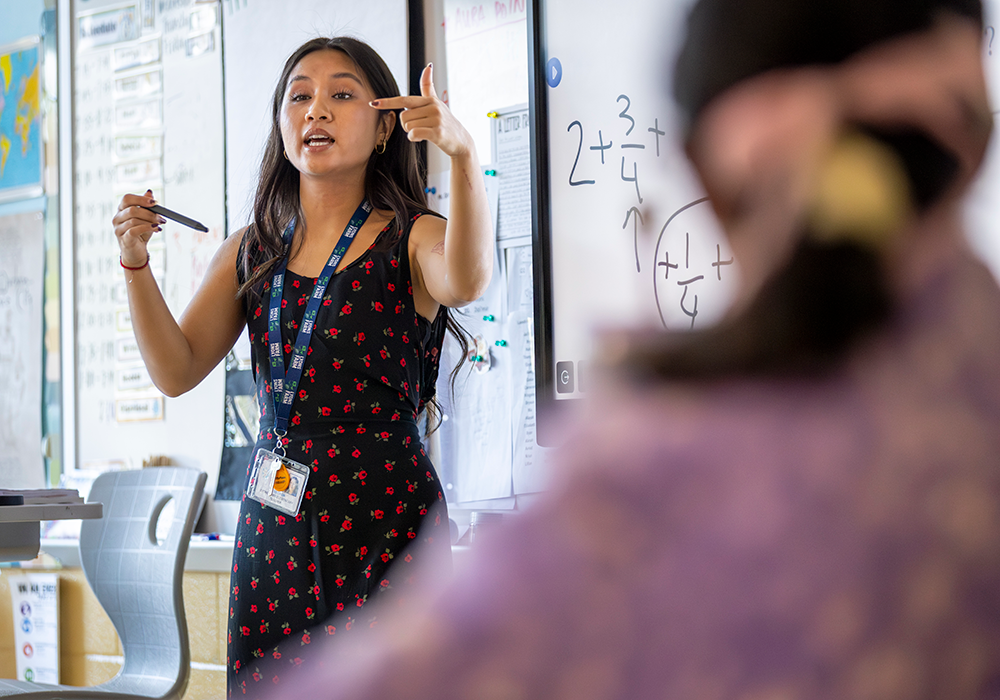
Follow the Durham team @DurhamUACS and the Southeast Regional Coalition for University-Assisted Community Schools @SRCUACS on Instagram.
Main image: Team leaders and student researchers in Fall 2024
